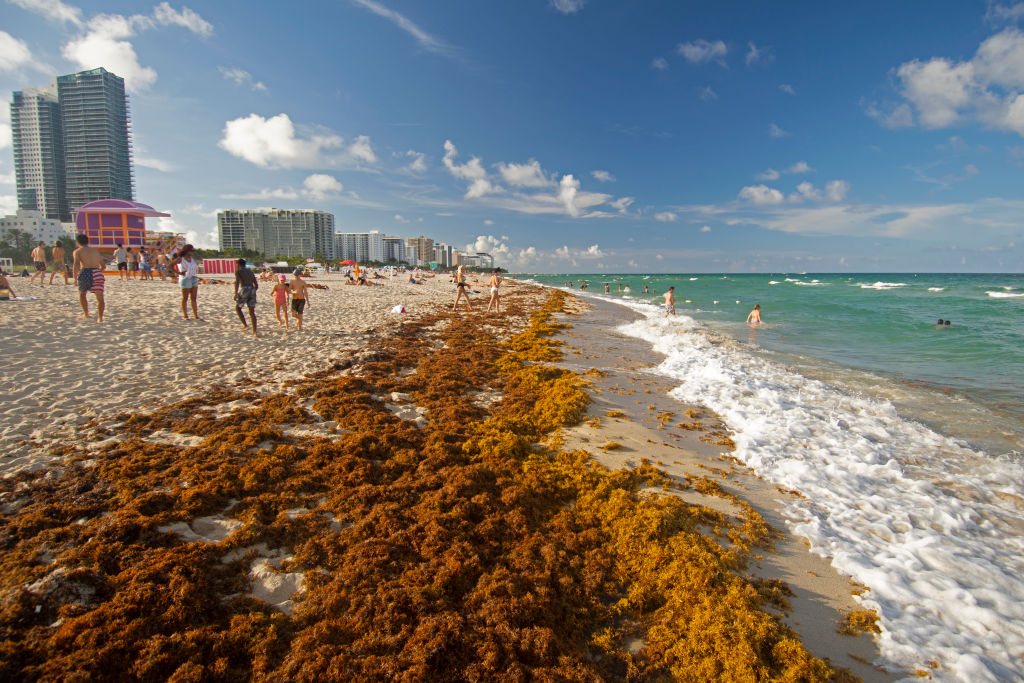A giant 'blob' of seaweed heading toward Florida could 'wreak havoc' on the coast


A free daily email with the biggest news stories of the day – and the best features from TheWeek.com
You are now subscribed
Your newsletter sign-up was successful
An enormous "blob" of seaweed is heading towards Florida and the Gulf of Mexico's coastlines, CNN reports. The mass of seaweed is thousands of miles long, large enough to be seen from outer space.
The variety of seaweed, known as sargassum, naturally floats in the ocean and can provide critical habitat for numerous species of sea life, NPR explains. It also absorbs carbon dioxide from the atmosphere. However, close to the coast sargassum can "wreak havoc on local ecosystems" by "smothering coral reefs and altering the water's pH balance."
Also, the seaweed begins to rot as it approaches the coast, releasing toxic fumes and odor. "This is an entirely new oceanographic phenomenon that is creating such a problem — really a catastrophic problem — for tourism in the Caribbean region where it piles up on beaches up to 5 or 6 feet deep," according to Dr. Brian Lapointe, a researcher at Florida Atlantic University's Harbor Branch Oceanographic Institute.
The Week
Escape your echo chamber. Get the facts behind the news, plus analysis from multiple perspectives.

Sign up for The Week's Free Newsletters
From our morning news briefing to a weekly Good News Newsletter, get the best of The Week delivered directly to your inbox.
From our morning news briefing to a weekly Good News Newsletter, get the best of The Week delivered directly to your inbox.
Scientists say that the size of the sargassum clump is also increasing. "These blooms are getting bigger and bigger and this year looks like it's going to be the biggest year yet on record," Lapointe said. He attributes the change to an increase in nitrogen and phosphorus levels, largely due to increased fertilizer use and wastewater from cities reaching the ocean. "It's almost like sargassum is a barometer for how global nitrogen levels are changing."
The blob is expected to reach the coast sometime in July, spelling trouble for beachgoers. "You have to be very careful when you clean the beaches," Lapointe warned, citing the toxicity of the seaweed. "It's having catastrophic effects," he said.
A free daily email with the biggest news stories of the day – and the best features from TheWeek.com
Devika Rao has worked as a staff writer at The Week since 2022, covering science, the environment, climate and business. She previously worked as a policy associate for a nonprofit organization advocating for environmental action from a business perspective.
